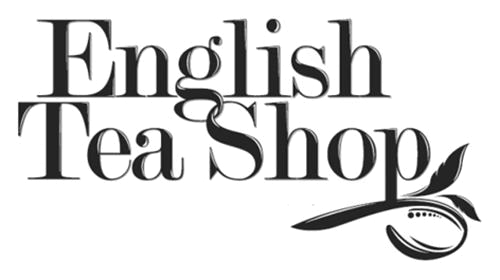
-
What Do We Do?
-
Resources
-
Events
-
Coaching
- Training


Learn from the "Best of the Best" - the Great Game™ All-Stars

Location:
Colombo, Sri Lanka
2020 Revenues:
$19.1 million
Employees: 262
Critical Numbers™: Profit Before Taxes / Turnover
The island nation of Sri Lanka has long been revered for its tea, especially in the United Kingdom. In 2010, Suranga Herath and his team capitalized on that history when they rebranded the business (which was founded in 2001), calling it English Tea Shop. Building on lessons learned from earlier in the company’s history, when it catered to low cost and mass production, English Tea Shop evolved into a premium organic brand. They did that by moving away from the traditional auction model used to buy tea for centuries. To help promote sustainable agriculture practices, the company now buys its tea directly from organic farmers.
In 2014, Herath flew to the U.S. to attend an executive leadership program at Harvard University. He was looking for ideas of how to sustain his business by creating a shared-value model where his employees, farmers, and customers could all thrive together.
One of Herath’s professors, Boris Groysberg, had listed Jack Stack’s The Great Game of Business on a reading list. After reading the book, Herath immediately put together a presentation for his leadership team explaining how The Great Game of Business® (GGOB) was the operating system for their business they were looking for. Despite some concerns about opening their books to the entire team, they made the commitment to start playing The Game, and teaching their team to become businesspeople, in 2015.
Within the first 12 months of playing GGOB—what the team calls “The Big Game”—English Tea Shop saw a 31% improvement in productivity, all of which came without any new investments in systems or technology. But the most surprising impact came during the recent pandemic. “In the most difficult times of the pandemic we kept our head high and were still profitable and highly productive despite innumerable environmental challenges,” says Herath. “Everyone on our team worked towards a commonly shared goal. While the financials have become even stronger during the pandemic, the biggest advantage we gained was the greater understanding of our business. We took our Game to another level.”
“A strong company culture will give the employees a better understanding of what is expected of them and what they're working towards and creative in solving problems, and personally it has helped me to understand that I am a part of the company and that I'm not just an employee number.”
~ Sylvana Fonseka, Assistant Manager QA
The pandemic provided the team an opportunity to take their GGOB play to the next level. Sri Lanka was forced to shut down multiple times over the past year, which forced English Tea to shut down their production and warehouse facilities—while cancelling more than $2 million worth of orders. But the team never stopped their Huddles—moving them to Zoom—which helped everyone remain informed and connected to the situation they were facing. “Despite the difficult experience, our team became leaders and businesspeople,” says Herath. “People understood the gravity of the situation and we credit GGOB for that. We changed our mindset and used The Game to celebrate small wins whenever we could.”
The English Tea Shop team relied on playing 35 MiniGames over the past year to tackle various cost-reduction efforts in its factory and logistics operations throughout the pandemic. One of their best MiniGames in 2020 was called “Balancing the Coin,” which had a goal of maintaining a limit of 60 overtimes hours a month worked for packing assistants to enable them to have a work-life balance.
“By having the opportunity to focus on the bigger picture of the organization, we can find time to focus on the overall structure of company as employees start to think, feel and act like owners.”
~ H.A.W. Himahansi Hasinthara, Lab Assistant
The English Tea team has revamped its Critical Numbers for the coming year and has created a new Stake in the Outcome bonus program to reward continued profitability and productivity. In the coming year, the team sees room to improve the accuracy of its forward-forecasts, which began in 2020. “We see MiniGames, forward forecasting, and High-Involvement Planning™ becoming even more important and put to better use in the new normal, post-COVID world,” says Herath.
“Great Game, we call it the Big Game, has created a culture and trust among all, through the radical transparency we have created. Knowing the financials of the business and knowledge shared through top to bottom has enabled everyone to engage with the business thinking as owners which has also connected everyone's line of sight.”
~ Sampath Chandana Amarasena, Master Blender/ Director
Terms and Conditions | Privacy Policy
All trademarks, trade names or logos mentioned or used herein are the property of their respective owners. Reference to any product or service by manufacturer, trade name, trademark or otherwise does not reflect any affiliation with the manufacturer or its endorsement of the products or services. | COPYRIGHT © 2019 THE GREAT GAME OF BUSINESS, INC. All rights reserved.
For over 40 years, The Great Game of Business™ has helped organizations reach their highest potential and value.
Tapping into the universal human need to win, GGOB educates your people in the rules of business, rallies them around a common goal, empowers them to see and improve the score, and engages them by giving them a stake in the outcome.
2401 E. Sunshine St.
Springfield, MO 65804